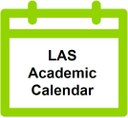Core
The Core is a distinctive feature of the Freiburg LAS Program and provides a shared foundation for knowledge and reflection in both academic and non-academic contexts. It combines philosophical and practical elements and includes:
- Academic Key Skills for research, analysis, presentation, and writing
- Reflections on Science and Knowledge: philosophy, history, and social anthropology of science and knowledge – the key to interdisciplinary education and training
- Responsibility and Leadership
This brings skills, research methods, and general epistemology into a comprehensive framework that has social applicability, intellectual depth, and personal relevance. The Core includes the following modules:

You can find the full description of each module in the Module Handbook. The basic and advanced courses we offer in these modules are listed in the Course Catalog.
1. Academic Key Skills
Especially in the first year, students develop and sharpen their academic key skills: research and analytical methods, exchange formats, researching and working with academic literature and sources, and academic presentation. This ensures that all LAS students, irrespective of their background or interests, share a common basis for mastering academic challenges. This part of the Core is part of the LAS Foundational Year.
2. Reflections on Science and Knowledge
The LAS Program at UCF emphasizes on reflections on scientific knowledge and methods. This focus is mirrored in the two professorships based at UCF: Epistemology and Theory of Science (ETS) and Science and Technology Studies (STS).
The four modules in this part of the Core form the inter- and meta-disciplinary backbone of the LAS Program and provide a coherent conceptual and methodological framework for the different areas of specialization in the Majors. Key topics in the courses offered by the ETS professorship are logic, the human epistemic condition, epistemic and social status of scientific theories, the progress of science, and the reality of scientific objects. The STS professorship offers courses that focus and comment on science, technology, and academia from a historical and a modern perspective and explore their interdependence on society, as well as on everyday knowledge practices.
3. Responsibility and Leadership
These courses are spread out across the LAS Program and are designed to inspire and equip students to effectively engage with future challenges. They prompt students to consider their own position in the world, to think about their responsibility and personal vision in life, and to acquire the skills they need in order to reach their goals. Two sequential modules focus on four main themes: social (in)equality, personalities and group processes, applied ethics and characteristics of leadership. Courses combine rigorous academic input with personal reflection and training in more experiential formats.
For more information, please contact Thorsten Leiendecker.


